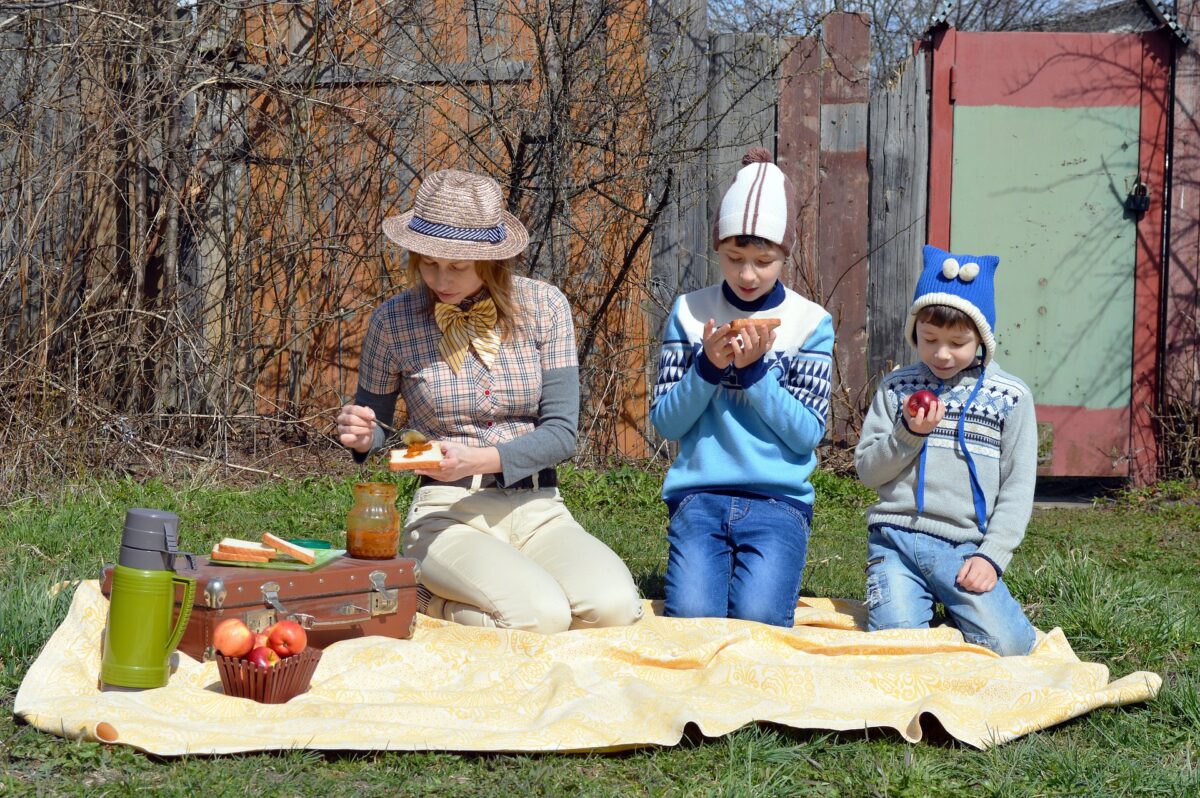Vegan and Vegetarian Kids: Overcoming Nutritional Deficiencies
May 1, 2023 by drshawn

More and more families are choosing to adopt a vegan or vegetarian diet. According to a recent study published by the Academy of Nutrition and Dietetics, plant-based diets can meet all nutritional needs for infants and children. However, parents must be mindful about the potential nutritional deficiencies that may arise with these diets. In this blog post, I will discuss the most common nutrient deficiencies that vegan and vegetarian kids might experience and provide tips on how to ensure they get enough nutrients.
1. Vitamin B12
Vegan and vegetarian diets are often low in Vitamin B12 since it is most commonly found in animal products. This nutrient is necessary for healthy brain function, red blood cell production, and DNA synthesis. Fortunately, several vegan sources of B12 are available, including fortified foods such as plant-based milks, cereals, and nutritional yeast. Parents can also give their kids a B12 supplement or buy a vegan B12 supplement spray.
Some common symptoms of B12 deficiency in kids include:
-
Delayed development
-
Weakness and fatigue
-
Pale skin
-
Poor appetite
-
Numbness or tingling in hands and feet
-
Difficulty walking and balancing
-
Behavioral changes
-
Cognitive difficulties
-
Mouth ulcers or sores
-
Anemia (low red blood cell count)
Recommendation: Active Chewable B12 from Genestra provides 1mg of Methyl-B12 in a cherry flavored chewable tablet. It is vegan, gluten, dairy and soy free.
2. Iron
Iron is essential for the production of hemoglobin, a protein in red blood cells responsible for carrying oxygen throughout the body. Iron deficiency is common in vegan and vegetarian kids because plant-based sources of iron (such as beans, lentils, and leafy greens) are not as easily absorbed as animal-derived iron. To increase iron absorption, parents should pair iron-rich foods with vitamin C foods such as citrus fruits. When iron deficiency is present it can be difficult to raise levels sufficiently with diet alone. Iron supplementation can be useful, however, it is important to do so under the care of a family physician or naturopathic doctor. Too much iron can be as problematic as too little.
Some common symptoms of iron deficiency in kids include:
-
Pale skin or lips
-
Fatigue or weakness
-
Irritability or fussiness
-
Poor appetite
-
Decreased growth and development
-
Increased infections
-
Difficulty concentrating
-
Cold hands and feet
-
Brittle nails
-
Headaches
Recommendation: Floradix Liquid Iron is a great tasting vegetarian friendly iron supplement with synergistic B-vitamins.
3. Protein
Many people wonder whether a vegan diet can provide adequate protein for growing kids. The answer is undoubtedly yes! Plants like beans, lentils, tofu, and quinoa pack significant protein. However, it is essential to combine these protein sources with whole grains to create complete protein. It is also okay to offer plant-based protein sources throughout the day and not all at once. Edamame, nut butter, and vegan protein shakes are excellent options. Check out my article on Nutritional Requirements for kids to gain an idea of how much protein your child requires. If a protein deficiency in suspected, using a protein supplement can be an easy way to boost your child’s daily protein consumption.
Some signs and symptoms of protein deficiency in kids include:
-
Edema or swelling in the feet, hands, or belly
-
Slow growth or failure to thrive
-
Loss of muscle mass
-
Delayed wound healing
-
Weak or brittle hair and nails
-
Loss of appetite or difficulty eating
-
Irritability or mood changes
-
Lowered immunity, leading to increased infections
Recommendations: Progressive Nutritionals Harmonized Fermented Vegan Protein is a vegan option high in protein and easy to digest. It is available in vanilla and chocolate.
4. Calcium
Calcium is critical for strong bones, muscles, and teeth. While dairy products are the most common source of calcium, vegan kids can get enough calcium from plant-based sources like fortified non-dairy milk, broccoli, bok choy, and kale. Parents can also offer vegan calcium supplements.
Some common signs and symptoms of calcium deficiency in kids include:
-
Delayed development and growth
-
Weak bones that are prone to fractures
-
Muscle cramps and spasms
-
Numbness and tingling in the fingers, toes, or face
-
Weak and brittle nails
-
Tooth decay and other dental problems
-
Fatigue or lethargy
-
Difficulty sleeping
-
Irritability or mood changes
-
Loss of appetite
Recommendation: Calcium Kids Chewable tablets from Progressive Nutritional’s provides calcium and other micronutrients in a great tasting sugar free and vegetarian format.
5. Zinc
Zinc is essential for growth and development, immune system function, and wound healing. Zinc can be found in nuts, seeds, and legumes, and fortified cereals. Parents could also offer vegan supplements to ensure adequate zinc intake. it is important to note that long term zinc supplementation can cause copper deficiency. Therefore, it is important to supplement under the supervision of a physician, nutritionist or naturopathic doctor.
Some common signs and symptoms of zinc deficiency in kids include:
-
Delayed growth and development
-
Poor appetite and weight loss
-
Delayed wound healing
-
Diarrhea and other digestive issues
-
Increased infections
-
Skin rash or dry skin
-
Weakness and fatigue
-
Hair loss
-
Difficulty concentrating or memory problems
-
Mood changes, such as irritability or depression


